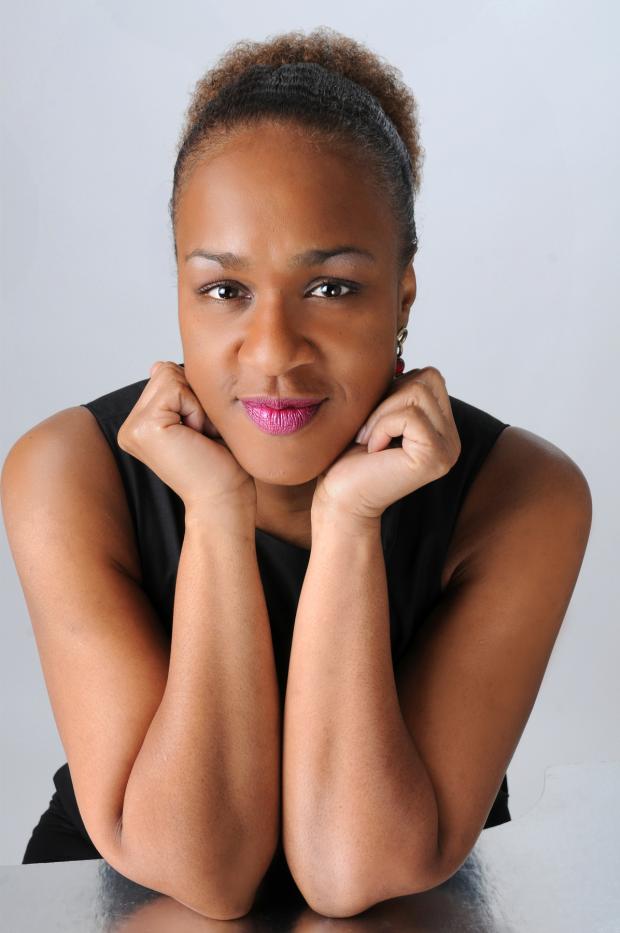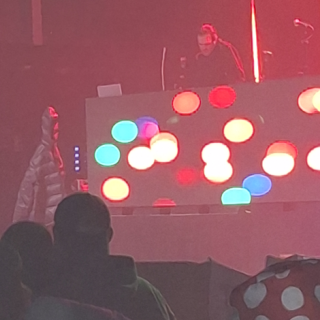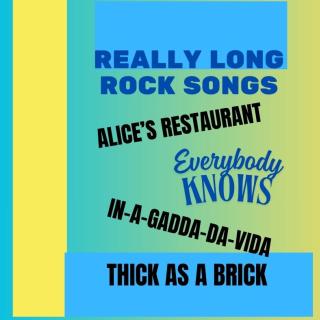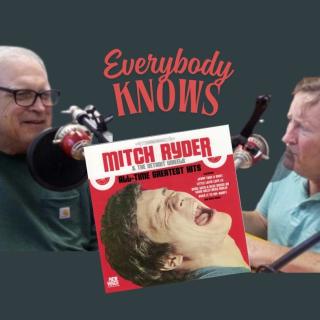Dr. Elaine Richardson is a very accomplished human being. She founded the OSU Hip Hop Literacies Conference which has brought the Dream Defenders, Chuck D, MC Lyte, Dr. Christopher Edmin and many other prominent Hiphop thinkers to our fair city over the years. Dr. E has won countless awards including the Ohio State University Community Cultural Icon Award. Ohio State University College of Education Diversity Award and National Council of Negro Women Community Service Award. In 2013, Dr. E was named one of Cleveland Ohio’s Top 25 Most influential African-American Women Award in 2013.
Saturday, August 9th Dr. E will be performing at the Frank Hale Center’s MLK Lounge, 154 12th Avenue on OSU’s Main Campus in support of her recent memoir PHD (Poor H* on Dope) To PHD: How Education Saved My Life.
PHD to To PHD openly details how Dr. E. used education to escaped the fatal dangers of prostitution and drug addiction via education. Dr. E was kind enough to talk to me about her book, life, her SIsterFriends program, the importance of media literacy, and more.
When you went to write PHD to PHD was there any fear of letting people know about your past?
Not so much fear at this point. I think when I was younger and before I was tenured. When I was an assistant professor at Penn State, It was scary. I thought: ‘If people knew that. what would they think of me?’
As I have been growing over the years in the Academy, I realized that is why God put me there. A lot of people have been thru things so other people can feel welcomed.
Whatever you are going thru. You can help somebody else.
I have something different to offer. It shows that no matter if you have been counted out. You don’t have to accept that. You can still go for your best self. The dreams.
What time period is the book set?
My whole life. From the 60’s up until I got my PHD and a little bit after.
In your book you discuss drug use and abusive pimps. How do you feel about how pimps are depicted in pop culture?
It’s more glamorized. It’s not looked at from the perspective...It’s not something that should be glamorized. I think it’s a problem. Especially for younger adolescents who are developing their identity. I think that it is not something I would want my child to aspire to be. I don’t think anyone ever wanted their son or daughter to be a pimp.
I think it’s problematic.
What made you change from being in the street life to wanting to get an education?
Fear that I was at the end of my life and being desperate enough to trust my life was worth saving. A lot of us didn’t have a lot of hope.
Was there a particular individual that gave you hope?
My mother never gave up on me. My mother was always trying to remind me of who I was. Trying to save me. Trying to be there for me. There was also a professor at Cleveland State University by the name of Dr. Andrew Edwards. He had a program called project second chance. I found about that program after getting out of jail. I saw a flyer about in our justice center in Cleveland Ohio.
One day I had a clear mind and I called that number. I used to go there for counseling. I was not dedicated like I should have been to doing what they told me to do. People are addicted to not just drugs, A whole lifestyle at that point.
I would try to do things that Dr. Edwards told me to do. Eventually I just got to a very low point where I felt like my life was totally unmanageable That I needed to go to jail or something to save myself.
Or save my life.
I was pregnant and I was having a child. I thought my child was addicted to drugs. I had been using drugs while I was pregnant. And I went to the hospital. i thought that I had killed the baby and they would put me in jail.
When I got to the hospital; I was relieved that my baby was not dead. My baby was not addicted to drugs. They induce my labor and I had the baby. And the people from that program: Project Second Chance were there for me. They talked to me about starting my life over again. How much they would help me. I could use all my support systems that I have.
I was lucky enough to still have my family. I had already had one child. My mom was keeping my oldest child for me. They really convinced me that I had a lot going for myself. Because I had my support system.
I trusted in my life could be saved and I could be something or do something positive with my life and start over again. I took things one step at a time. I really began to do what they told me to do.
6 months later I went back to Cleveland State University and I just never stopped going.
I changed my whole life. I changed all my friends.My life changed one day at a time.
Did you get your PHD from Cleveland State?
No, Michigan State.
Where was your first teaching job?
My first teaching job was at the University of Minnesota.
What year was that?
That was 1996.
Now the shoe is on the foot and you are the educator. What is name of your Social Program?
SisterFriends. I have a middle school after school program for girls. It’s really about making you conscious about your power. Your beauty. Your intellect. And not letting society define who you are.
Where is this program at?
RIght now we are at Sherwood Middle School.
Do people just sign-ip?
A school counselor recommends students as well.
We do a lot with pop culture. We do a lot with watching television shows. Watching videos. Watching movies. Reading and writing and thinking about how young black women or girls are represented in different stories. Different images What those images mean. How important language is. How important it is to be critical on the way women are positioned in society.
What would you like to see most on how black women are depicted?
Stereotypes, Unfortunately it is a part of human nature.You know things based on a stereotypes. When it comes to human beings; We really have to incorporate a critical perspective of people and understand that just because a person looks a certain way or talks a certain way; that we shouldn’t devalue their humanity.
Or if a person is poor, You know the things that have been used to subordinate people with. Self-worth. We need to remain conscious of those things.
Even something like hair. As a black woman or a black person. Those of us don’t have what was told to us is good hair just from living in a Eurocentric society. Those of us that don’t have good hair that translates to a more European hair. If your hair isn’t long and I don’t want to say silky but you get my main
Things like that seem like a small thing but they are really big things in people’s identity. A lot of people value people based on things that shouldn’t be valued on,
What can we expect from Saturday? Are you going to do a performance? Is it a reading?
I am. It’s a one woman show. I don’t read at all. I do monologues. Storytelling. I use images from when I was younger or my parents. Just different images of things that I am talking about in my one woman show. It’s sort of like an unplugged, Broadway show. I don’t have a lot of props. I don’t have an orchestra there for me.
Basically, I stand and deliver.




